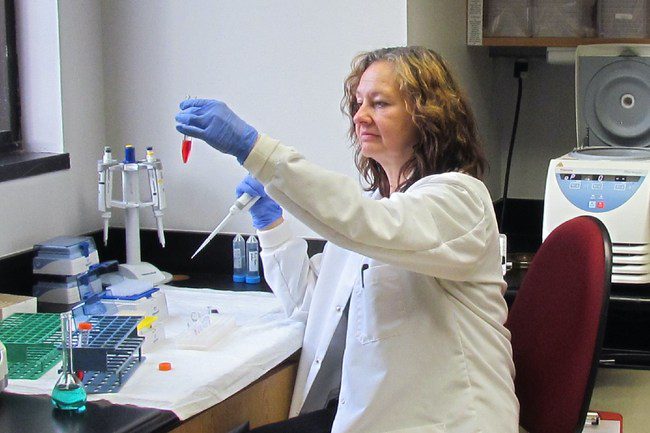September 15, 2020
Progentec, a leader in the development of diagnostic and digital technologies that support the proactive management of autoimmune diseases, today announces the launch of a novel blood test that can assess the likelihood of a systemic lupus erythematosus (“SLE” or more commonly “lupus”) patient experiencing an immunologic disease flare in the ensuing 12 weeks. This new technology gives rheumatologists a new tool to improve the quality of care for the estimated 1.5 million Americans affected by this autoimmune disease.
Progentec states the aiSLE™ DX Flare Risk Index uses a set of blood-based biomarkers that are measurably altered before the onset of flare symptoms in patients with systemic lupus erythematosus. The odds ratio (OR) indicates that a SLE patient with a positive aiSLE™ DX Flare Risk Index score is nearly five times more likely to experience a flare than a patient with a negative score.
“The study of biomarkers continues to be an increasingly invaluable and precise tool in the diagnosis and treatment of disease, and our novel test for assessing the likelihood of lupus-related flares holds great promise for helping rheumatologists manage the often painful and debilitating symptoms of lupus,” said Mohan Purushothaman, Ph.D., president, chairman and CEO of Oklahoma City-based Progentec. “This novel test quantifies in practical, numeric terms the risk that a patient will begin experiencing a flare within the ensuing three months – important, actionable knowledge that can be applied to a patient’s treatment regimen.”
The aiSLE™ DX Flare Risk Index uses the ELLA™ testing platform. As part of the development of the test, a total of 52 soluble immune mediators, including cytokines and chemokines, were examined in study participants for baseline and follow-up plasma levels. An algorithm using weighted levels of this immune panel was used to calculate a flare risk score, which reflects the risk of a study participant developing a disease-related flare within 12 weeks following the initial testing. aiSLE™ DX Flare Risk Index provides a risk score for the patient in addition to the individual biomarker readings. Subsequent patient samples and studies from the Centers of Excellence have demonstrated the ability to reduce the number of informative mediators to 11.
“The management of lupus symptoms has traditionally involved a regimen of reactive protocols,” said Chaim Putterman, MD, Professor of Medicine and Microbiology & Immunology at the Albert Einstein College of Medicine and a member of Progentec’s Scientific Advisory Board. “A test that assesses the likely risk of the onset of a flare is one of the first proactive measures available to the rheumatological community. The empirical data derived from such a test potentially has tremendous value in helping devise the right treatment and care for lupus patients.”
Proactive treatment strategies based on the aiSLE™ DX Flare Risk Index result may help clinicians and patients reduce the negative impacts of lupus flares, which include organ damage, hospitalizations, and reductions in patient quality of life.


